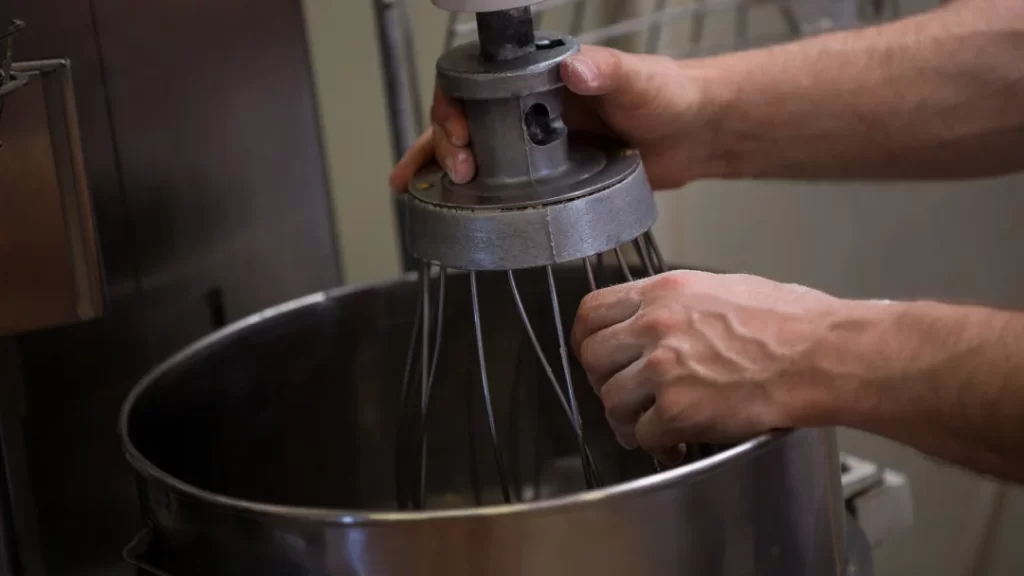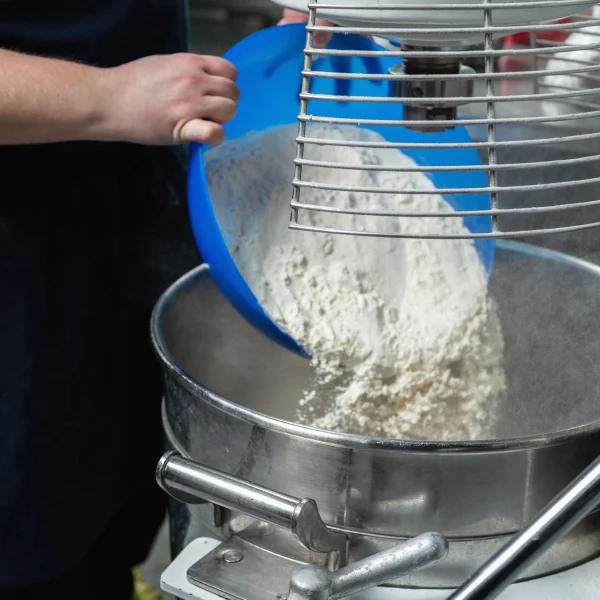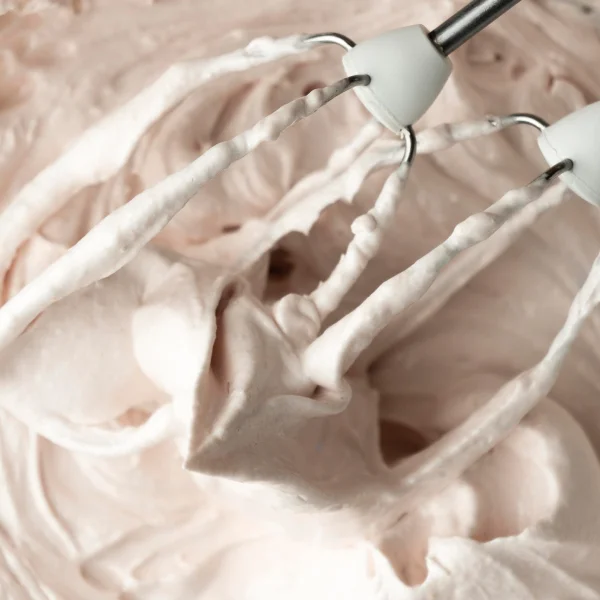
In the world of breadmaking and pastry, dough quality is at the heart of the final product. Whether for traditional bread, viennoiseries, or richer pastry doughs, consistency and control during kneading are fundamental. This is where the bakery mixer comes in — an essential piece of equipment for both artisans and larger-scale production.
What is a bakery mixer?

A bakery mixer is a machine specifically designed to replicate the baker’s hand movements, but with more power, consistency, and precision. Its main function is to mix and develop gluten in the dough, ensuring even hydration of the flour while incorporating the air needed for a supple, elastic texture.
The different types of mixers vary by mechanism and usage:
- Fork mixer: ideal for traditional doughs, it operates at a slow speed, preserving the dough’s structure, making it suitable for gluten-rich flours.
- Tilting mixer: designed for medium to large-scale production, it eases dough transfer with its tilting system.
- Spiral mixer: today the most common, it combines power and efficiency for both wet and dry doughs, while reducing kneading time.
- Removable bowl mixer: perfect for optimizing production logistics, allowing one batch to be prepared while another bowl is in use.
Why is a bakery mixer essential?

The effectiveness of a bakery mixer lies in its ability to handle large quantities of dough while ensuring optimal gluten development. Unlike manual kneading, it provides:
- Perfect consistency: dough is worked evenly, preventing overly dry or sticky areas.
- Time savings: kneading cycles are faster and more regular.
- Better oxygenation: encourages fermentation and a lighter crumb.
- Production consistency: crucial for stable quality across multiple daily batches.
Technical advantages
These models stand out for their durability, ergonomic design, and ability to meet various needs, whether in a small artisan bakery or large-scale industrial production. Advantages include:
- Adaptability for different doughs (bread, brioche, pizza dough).
- Adjustable speed depending on the desired texture.
- Robustness and durability in high-demand environments.
How to choose a bakery mixer?
Before investing in a bakery mixer, several factors should be considered based on your needs:
- Bowl capacity: ranges from a few dozen to several hundred kilos of dough.
- Type of mechanism: spiral, fork, or diving arm — each with its specific benefits.
- Safety system: automatic shut-off in case of lid opening or overload.
- Ease of cleaning: removable bowl and stainless-steel materials make maintenance easier.
- Energy consumption: an important factor in continuous production.
A successful kneading process goes beyond simply mixing ingredients. The bakery mixer directly impacts dough quality:
- Gluten network formation: traps the carbon dioxide produced by yeast, essential for rising.
- Optimal hydration: ensures the water is absorbed properly for supple, workable dough.
- Temperature control: overly fast kneading can heat the dough, something modern mixers address with adjustable speeds.
Choosing the right bakery mixer means investing in quality, consistency, and long-term performance. To make the best decision, from selection to installation and maintenance of your bakery and pastry equipment, rely on seasoned experts.
For personalized advice and access to a complete range of reliable, high-performance machinery, trust Équipements Boulangerie. With over 35 years of experience, our team guides you in the selection, purchase, and repair of your bakery mixer as well as all other professional equipment.
